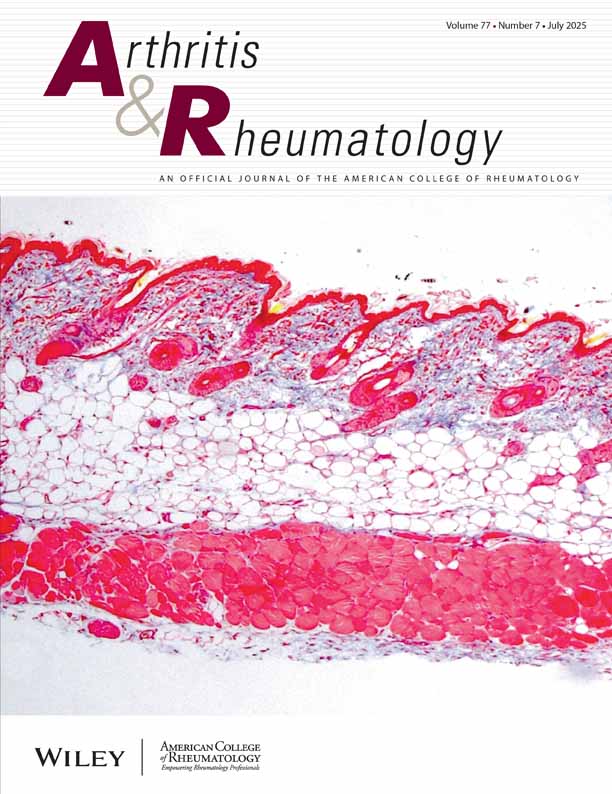Therapeutic efficacy of a novel membrane-targeted complement regulator in antigen-induced arthritis in the rat
Abstract
Objective
Complement system activation is strongly implicated as a factor in the pathogenesis of chronic synovitis in human rheumatoid arthritis. The objective of this study was to explore the therapeutic potential and local retention of a novel membrane-targeting complement regulatory protein, derived from human complement receptor 1, in the experimental setting of rat antigen-induced arthritis.
Methods
Sensitized animals were treated at the time of arthritis induction with a single intraarticular (IA) dose of the membrane-targeting regulator APT070, a non–membrane-targeting control regulator (APT898), or vehicle control, and disease was assessed clinically and histologically. In addition, immunocytochemical analysis was performed on sections from normal rat knee joints at various time points after IA injection with APT070.
Results
Animals treated with APT070 showed a dose-dependent therapeutic effect, with significantly milder clinical and histologic disease compared with both other treatment groups (P < 0.008 at the higher dose) and minimal evidence of erosive disease at study end in the active treatment group. Immunoperoxidase and immunofluorescence studies demonstrated local retention of APT070 on cell surface membranes within the normal joint up to 48 hours after IA injection.
Conclusion
These results show that IA complement inhibition represents an effective therapeutic strategy in experimental arthritis, by demonstrating that the exogenous delivery of a membrane-targeting complement regulator can result in prolonged synovial cell surface binding and significant clinical benefit in vivo. Complement inhibitory strategies of this type should be considered as novel therapies in human inflammatory arthritis.




